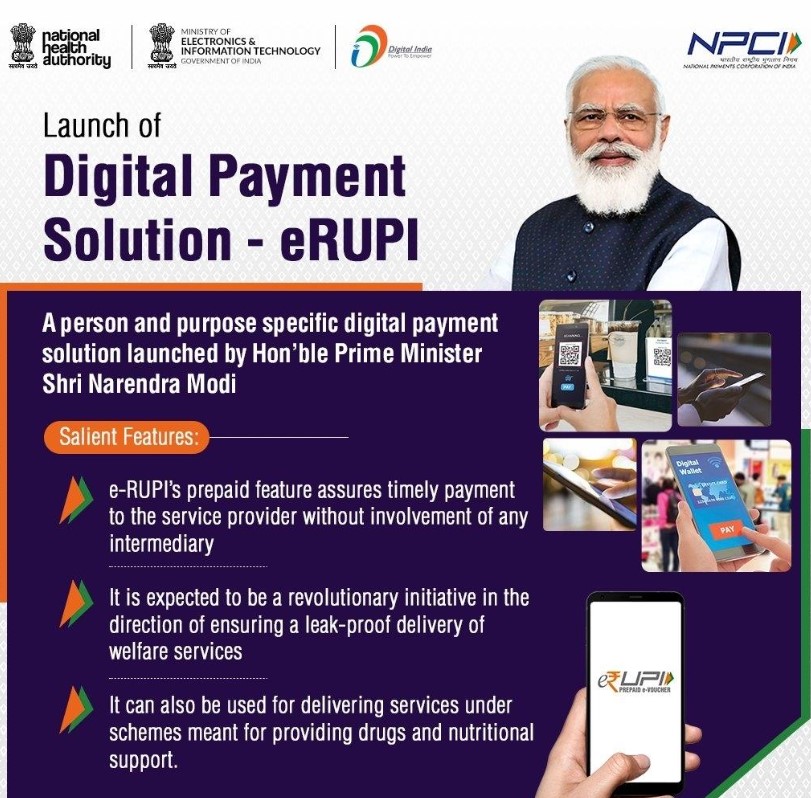In a significant move towards digital transformation and financial inclusion, the Reserve Bank of India (RBI) has announced that it will allow non-bank companies to issue e-rupi vouchers. This decision, highlighted by RBI Governor Shaktikanta Das, aims to provide greater accessibility to digital transactions, expand the reach of digital payments, and promote financial innovation in India. With this development, non-bank entities will play a pivotal role in driving the adoption of e-rupi vouchers, revolutionizing the way transactions are conducted in the country.

What are E-Rupi Vouchers? RBI Allows New Mode of Digital Payments
The introduction of e-rupi vouchers by non-bank companies marks a significant step in the RBI’s ongoing efforts to promote digital payments and enhance financial inclusion in India. By allowing non-bank entities to issue e-rupi vouchers, the central bank seeks to leverage the existing digital infrastructure and expertise of these companies to provide seamless and secure digital transactions to a larger segment of the population.
E-rupi vouchers are digital equivalents of traditional currency, which can be stored in digital wallets and used for various transactions. These vouchers are designed to bridge the gap between traditional cash transactions and digital payments, making it easier for individuals without bank accounts or access to formal financial services to participate in the digital economy. The move aligns with the Indian government’s vision of a cashless society and the RBI’s commitment to fostering a robust and inclusive digital payments ecosystem.
Empowering Non-Bank Companies
By permitting non-bank entities to issue e-rupi vouchers, the RBI acknowledges the potential of these companies in driving financial innovation and expanding the reach of digital payments. Non-bank entities, such as fintech companies, payment system providers, and other tech-driven enterprises, have been at the forefront of the digital revolution in India, offering innovative solutions and services to cater to diverse consumer needs.
The inclusion of non-bank companies as issuers of e-rupi vouchers will encourage competition and foster a more dynamic payment ecosystem. These companies, armed with their technological prowess and customer-centric approach, can develop user-friendly applications and services that cater to specific market segments, enabling a more inclusive and personalized digital payments experience.
How E-Rupi Vouchers Work?
The availability of e-rupi vouchers through non-bank companies will significantly improve accessibility and convenience for consumers across the country. As traditional banking services may be out of reach for many individuals, especially in rural and remote areas, non-bank entities can leverage their extensive network and digital infrastructure to bring financial services closer to the unbanked and underbanked populations.
Moreover, e-rupi vouchers can provide an alternative mode of payment for consumers who may prefer the familiarity and ease of using physical cash. These digital equivalents of cash will allow individuals to make transactions online and offline, without the need for a bank account or traditional payment instruments. This flexibility and versatility of e-rupi vouchers can drive the adoption of digital payments among a wider population, leading to increased financial inclusion.
Regulatory Framework and Consumer Protection
While the entry of non-bank companies as issuers of e-rupi vouchers bring immense possibilities, the RBI emphasizes the importance of a robust regulatory framework to safeguard consumer interests. The central bank will prescribe necessary guidelines, including security, risk management, and customer protection standards, to ensure the smooth functioning of e-rupi voucher systems and prevent potential misuse.
The regulatory framework will address concerns such as data privacy, fraud prevention, and dispute resolution, assuring consumers of the safety and reliability of e-rupi voucher transactions. It will also establish a level playing field for all participants in the ecosystem, fostering healthy competition and maintaining the integrity of digital payment.
